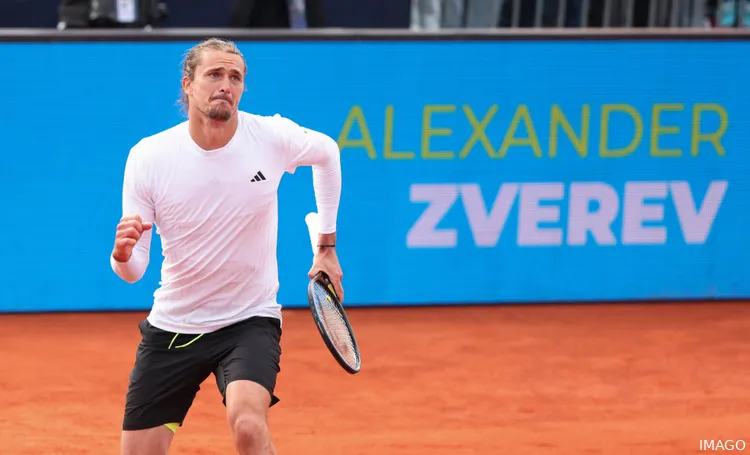
The 2025 Madrid Open has been electrified by a storm of controversy surrounding world No. 2 Alexander Zverev, whose actions during a third-round match against Spain’s Alejandro Davidovich Fokina on April 27 ignited a firestorm of debate. In a dramatic 2-6, 7-6(3), 7-6(0) victory, Zverev not only battled a formidable opponent but also clashed with the tournament’s electronic line-calling system, drawing boos from the crowd and sharp criticism from tennis luminaries like Boris Becker, Martina Navratilova, and Donna Vekic. The incident, marked by Zverev’s unprecedented use of his phone to photograph a disputed ball mark, has raised questions about technology’s role in tennis and the boundaries of player conduct.
Zverev, the top seed and a two-time Madrid champion, faced a torrid start against the home favorite Davidovich Fokina, who claimed the first set 6-2 with relentless aggression. The German, fresh off a Munich title, fought back in a grueling second set, but tensions boiled over late in the frame when a critical rally saw Davidovich Fokina’s sliced backhand called in by the electronic system. Convinced the ball was out, Zverev halted play, engaging in a heated exchange with chair umpire Mohamed Lahyani. “The machine is not working. Look at this mark,” Zverev pleaded, pointing to the clay. In a move that stunned spectators, he pulled out his phone, snapped a photo of the ball mark, and later shared it on social media, captioning it, “Clearly OUT…. @MutuaMadridOpen.” The act earned him a code violation for unsportsmanlike conduct, amplifying the crowd’s disapproval as boos echoed through the Caja Mágica.
Tennis legends were quick to weigh in, with Becker, a six-time Grand Slam champion and Zverev’s compatriot, declaring the call “Clearly OUT” on social media. Navratilova, an 18-time major winner, was equally emphatic, stating, “It’s definitely out no matter which angle you look from. And there is no other mark—this particular setup needs to be improved… something is way off.” Croatian star Donna Vekic echoed their sentiments, calling the situation “insanity” and lamenting, “So crazy that umpires are not able to overrule this!” Their reactions underscored a broader frustration with the electronic line-calling system, which, unlike traditional clay-court protocols, leaves no room for umpires to inspect physical ball marks.
The controversy wasn’t Zverev’s alone. Earlier in the tournament, Aryna Sabalenka faced a similar issue, highlighting a recurring problem with Madrid’s system. Zverev’s decision to document the mark, however, pushed the debate into new territory. Supporters argued he was fighting for fairness, while critics, including vocal fans on social media, accused him of gamesmanship, with one user branding the phone stunt “disrespectful.” The incident added fuel to Zverev’s polarizing reputation, which has been shaped by past outbursts and off-court legal battles, including settled domestic abuse allegations in 2024. “Tennis crowds are notoriously partisan, especially when a local favorite is involved,” noted a commentator, explaining the Madrid crowd’s hostility toward Zverev’s combative demeanor.
Despite the drama, Zverev’s on-court resilience shone through. He navigated a tense second-set tiebreak and dominated the third-set tiebreak 7-0, saving multiple break points to secure his 24th win in 29 Madrid matches. “The first set wasn’t my best tennis, but it is sport and it can change quickly,” Zverev said post-match, focusing on his comeback rather than the controversy. His performance sets up a fourth-round clash with Francisco Cerundolo, as he chases a third Madrid title and a chance to close the gap to world No. 1 Jannik Sinner, who is sidelined by a doping suspension.
The incident has sparked a broader conversation about technology in tennis. Clay courts have long relied on physical ball marks for disputed calls, a tradition at odds with Madrid’s electronic system. “The sport’s unwritten etiquette—players traditionally accept electronic rulings without protest—made his phone stunt a lightning rod for criticism,” observed a tennis analyst. As Zverev moves forward, the boos may fade, but the debate over line-calling accuracy and player recourse will linger, challenging the ATP to address the tension between innovation and tradition in a sport rooted in precision and passion.
Leave a Reply